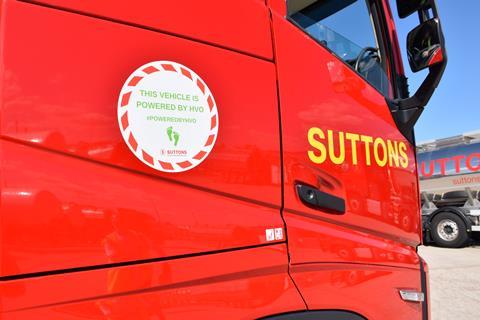Suttons Tankers will be utilising Hydrotreated Vegetable Oil (HVO) as an alternative fuel source, aligning with its environmental, social, and governance (ESG) strategy. HVO is a sustainable fuel that offers a significantly lower carbon footprint compared to diesel, reducing CO2 emissions by at least 85%.

This alternative fuel is compatible with existing diesel engines, requiring no modifications. The trial phase aims to reduce CO2 emissions by 91,000 kilograms across five designated routes. Full implementation of HVO throughout the Suttons fleet is expected to result in a reduction of 39,000 tonnes of CO2, equivalent to 85% of its Scope 1 emissions. Suttons’ overarching goal is to achieve net-zero emissions by 2040, and this trial is just one of many initiatives within its ESG strategy, which focuses on establishing the groundwork for a sustainable future.
“Sustainability, ESG, and minimizing our carbon footprint are top priorities at Suttons. By trialing HVO, we aim to gain a comprehensive understanding of the emissions reductions, costs, and practical aspects of this product. Reducing environmental impact is more challenging for logistics companies compared to other industries, but the emergence of alternative fuels like HVO is a step in the right direction and will significantly decrease emissions.” said Steve Hassall, Fleet Director at Suttons.
Martin Tomlinson, Head of Media and Truck Demonstration at Volvo Trucks UK & Ireland, commented on the benefits of running fleets on HVO, stating, “HVO offers numerous advantages. It is a less water and land-intensive alternative to biodiesel, and its high fuel quality allows for seamless integration into any of our latest Euro-6 diesel trucks.”
Tomlinson highlighted an impressive achievement with HVO, saying, “Last year, we fueled our own 44-tonne Volvo FH with I-Save demonstrator with HVO, setting a new record of 9.82 miles per gallon on the challenging Commercial Motor test route. This achievement underscores HVO’s suitability as a drop-in replacement for regular diesel.”













